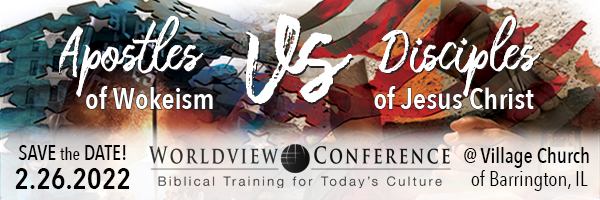Laser Beam Focus
If you do an internet search on the phrase “finding your purpose,” Google identifies approximately 1,140,000,000 websites, books, blogs, op-ed pieces, podcasts, academic papers, etc. that might help in the quest to determine what one’s purpose is in life. Without any internet help, I can tell you that the Westminster Shorter Catechism tackles this age-old topic with its very first question:
Q. What is the chief end of man?
A. Man’s chief end is to glorify God, and to enjoy Him forever.
The Baltimore Catechism answers the same question in this way:
A. God made me to know Him, to love Him, and to serve Him in this world, and to be happy with Him forever in heaven.
It really is that simple.
God made us, and our purpose is to glorify Him by loving and serving Him on earth and then delight in His presence for eternity in heaven.
It should come as no surprise that our culture presents a competing purpose – in its opinion a better purpose – find “happiness.” Today’s culture would like to convince us that its worldly-wise ways are best, but the narcissistic, hedonistic pursuit of happiness is ultimately a deeply unsatisfying alternative to the purpose God has designed for mankind.
Thousands of years ago, a very wise man wandered away from a life of substance and purpose to embrace the siren call of a worldly culture. He plunged into an existence defined by materialism, sensuality, even idolatry. As he gave himself over to indulging his every desire, he began to realize that his very life was evaporating into insignificance. Nearing the end of his days, the man repented of his folly and wrote a philosophical book which exposed the futility of the secular mind and worldview.
Of course I am describing King Solomon and the book of Ecclesiastes. In this book of wisdom literature, Solomon chronicles his search for happiness. From sobriety to drunkenness, from the worship of God to the worship of idols, from the heights of philosophy to the depths of depravity, Solomon experienced all that the world had to offer. So, what was his assessment of his exhaustive pursuit? “All is vanity” (Eccles.1:2.)
In the end, Solomon discovered that his striving was vanity – worthless, hollow, fruitless. The wisest man in the world concluded that his search had been an utter waste: all of his strength exerted for nothing, all of his wealth squandered for zilch, all of his mental energy spent pointlessly, all of his spiritual energy expended to no purpose.
Ecclesiastes is the account of Solomon’s life of empty endeavors. Yet, through this king and his sad story, God teaches us that life apart from Him is vain – hollow and worthless, without purpose. According to the book, unbelievers who search for wisdom might as well be chasing after the wind (Eccles. 1:14, 17), but Christian readers of Ecclesiastes, enlightened by the Holy Spirit, will discern that there are but two options: a life of hopelessness or the confident hope of a life entrusted to God. No hope or eternal hope – the choice seems obvious!
Knowing that life lived apart from God is vanity, how then should we live and to what purpose? The Word of God instructs us to “number our days” (Ps. 90:12), “to work heartily, as for the Lord and not for men” (Col. 3:23), and to “lay up treasures in heaven” (Matt. 6:19-21). If we are not consumed with the pursuit of material things that will burn up at the end of this age, shouldn’t we be laser-focused on doing the Lord’s work, laboring for what will last, and seeking His will in our every endeavor?
Of course we should! We ought to be the most intentional and diligent people on the face of the earth, purposefully and persistently seeking God in everything we set out to do, always aware that we are ambassadors of His Kingdom. But do our lives and our priorities reflect this ideal? Do we truly strive to glorify God in every aspect of our lives?
With ever-increasing intensity, our culture is attempting to force Christians to adopt its distorted and depraved worldview regarding marriage, family, abortion, sexuality, gender identity, religion, and absolute truth. Don’t fall for the lies or succumb to the pressure! We must jettison anything that distracts, degrades, and deters us from glorifying God, and instead wisely double down on what matters – what we know is true and what we know has eternal value.
In the end, unlike those of our culture, our efforts will not be in vain. When we refuse to run after empty, hollow, worthless endeavors (with the help of the Holy Spirit), we will leave futility and vanity behind and find genuine happiness in fulfilling our chief purpose – to love, serve, and glorify God as we do His will.

